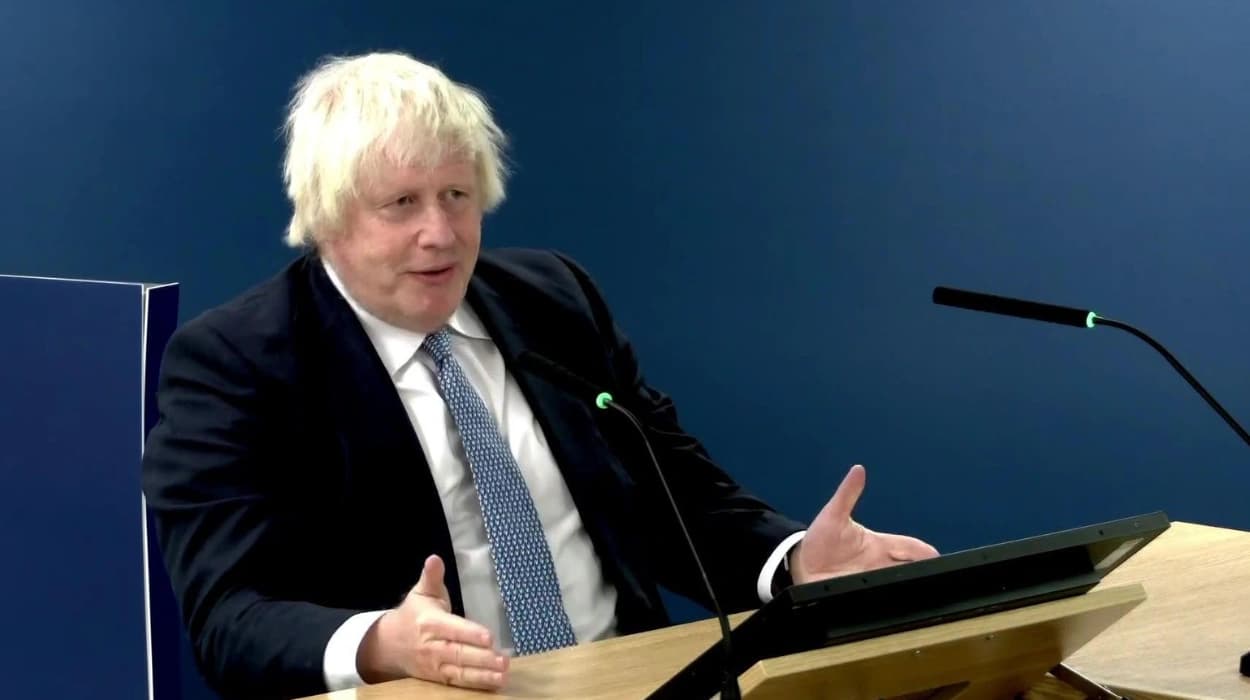Boris Johnson acknowledges children paid a 'huge price'
during the Covid, with lasting impacts on education, as the UK government
struggles to recover from the crisis.
The former prime minister reiterated his earlier regret for the mistakes committed by the government, but he expressed pride in the coping mechanisms implemented by educators and educational institutions.
He pushed back on earlier claims that there had been no plans in place for closing schools in early 2020, saying he had expected a "great deal of thought and care" was going into those decisions by then.
A "nightmare idea" and "personal horror" to close schools, he said, he had also hoped they would stay open.
Gavin Williamson, the former education secretary, testified before the panel last week, claiming that the government erred by "sticking to the plan" of attempting to keep schools running in March 2020.
"The speed at which the disease was progressing"
made it harder to plan around, he added, saying the key focus was on trying to avoid an "appalling public health crisis".
Williamson and Johnson have previously been at odds over a number of issues, including the choice to close schools once more in 2021, according to the report.
In an inflammatory message he sent to the then-prime minister in February 2021, Williamson claimed he had suffered "abuse" over the government's decision to close schools one day after they reopened. Williamson was presented with the message last week.
Johnson told the hearing on Tuesday that he had hoped to keep schools open by implementing "mass testing" in them.
However, he stated that was "never going to be a runner" due to the new alpha variation that came at the same time and sped up the disease's spread.
40% of anticipated results were lowered, forcing the Department for Education (DfE) to abandon its algorithmic approach to result awarding, which was intended to avoid inflated marks.
After GCSE and A-level exams were eliminated earlier in the year, the public outrage caused a U-turn, resulting in students eventually receiving the results their lecturers had projected.
At the hearing on Tuesday, Johnson was presented with his own leaked communications, in which he stated that the DfE required "better ministers" and that he had said this to advisers Dominic Cummings and Lee Cain at the time.
"We can't go on like this. I am thinking of going into Number 10 and firing people,"
he had said.
Johnson said he had been in a "thoroughly homicidal mood" at the time.
Referencing the exams fiasco, counsel to the inquiry Clair Dobbin KC suggested to Johnson that "the whole thing was a disaster".
"If you mean was Covid a disaster? Yes. Was the loss of education a disaster? Yes. Was the loss of exams a disaster? Yes. Was the disappointment, anger, frustration of a large number of kids - the additional frustration - a disaster? Yes it was,"
Johnson said.
He continued by saying,
"But it has to be seen in the context of us trying to deal with a much, much bigger disaster,"
alluding to the loss of education and tests.
He claimed that, "on the whole," the DfE had attempted to handle the pandemic in a somewhat "heroic job."
Johnson stated later in Tuesday's testimony that the social separation and lockdown regulations "probably did go too far" and that children might have been spared from them.
He stated that "hopefully this thing never happens again" but that closing schools "really should be a measure of last resort" in any future pandemic.
What specific long-term education outcomes worsened after the school closures?
The long- term education issues worsened after
school closures due to Covid- 19 include significantly lower standardized test
scores in calculation and reading, increased absentees, and more correctional
issues. Studies show scholars endured a decline in test scores by around
0.17 standard diversions, with middle and high school scholars
being more affected than young children. Absentee rates increased by
about 1.8, and correctional conduct, including dormancies
and expatriations, rose by 15.
Furthermore, the closures reduced council attendance and completion rates by 4.8 and 4.7 independently, and lowered employment liability and earnings in the early majority. These negative goods disproportionately impacted underprivileged groups, including economically vulnerable and scholars.
The interruption in classroom instruction hindered cognitive development, as remote literacy only incompletely substituted for in- person tutoring.
